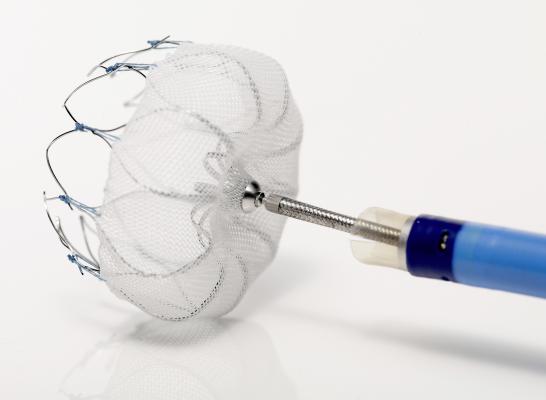
November 2, 2017 – Five-year results from the PREVAIL Trial comparing left atrial appendage closure (LAAC) with the Boston Scientific Watchman device to warfarin in patients with nonvalvular atrial fibrillation found that the first composite co-primary endpoint of stroke, systemic embolism (SE), or cardiovascular/unexplained death did not achieve noninferiority. However, the second co-primary endpoint of post-procedure ischemic stroke/SE did achieve noninferiority. When combined with the five-year outcomes of the PROTECT AF trial a meta-analysis demonstrated that LAAC provides stroke prevention comparable to warfarin, with additional reductions in major bleeding, particularly hemorrhagic stroke and mortality.
Findings were reported at the 2017 Transcatheter Cardiovascular Therapeutics (TCT) scientific symposium and published simultaneously in the Journal of the American College of Cardiology.
“Beyond PROTECT AF, PREVAIL is the only other completed randomized clinical trial comparing any LAAC device with an oral anticoagulant,” said Saibal Kar, M.D., director of cardiovascular intervention center research at Cedars-Sinai Medical Center. “Based on the combined results of these two studies, left atrial appendage closure is a reasonable strategy for stroke prophylaxis for patients who are poor candidates for long-term oral anticoagulation.”
Because of identical efficacy endpoint definitions in both the PROTECT AF and PREVAIL trials, and the near-identical eligibility criteria, data from both trials were pooled for a patient-level meta-analysis. The PROTECT AF and PREVAIL trials enrolled 707 and 407 patients, respectively, who were randomized 2:1 to the LAAC and warfarin arms. In both trials, patients were followed for the protocol-defined maximum time period of five years, ending in 2013 and 2017. Baseline patient characteristics were similar in both studies.
For the PREVAIL trial, all endpoints required the inclusion of the PROTECT AF informative prior, resulting in a calculated 18-month rate of the first coprimary endpoint (composite of stroke, systemic embolism (SE), or cardiovascular/unexplained death) of 0.066 with LAAC versus 0.051 for warfarin, yielding a mean 18-month rate ratio of 1.33 (95% credible interval: 0.78 to 2.13). It did not achieve noninferiority (posterior probability for noninferiority = 88.4%). However, the second coprimary endpoint of post-procedure ischemic stroke/SE did achieve noninferiority (posterior probability for noninferiority = 97.5%). The calculated 18-month rate for the second coprimary efficacy endpoint was 0.0255 in the LAAC group versus 0.0135 in the warfarin group (rate difference 0.0120; 95% credible interval: -0.0036 to 0.0275) At five years, the warfarin arm maintained an unexpectedly low ischemic stroke rate (0.73%), as compared with other studies examining such a regimen.
In the meta-analysis of PROTECT AF and PREVAIL with five-year follow-up, the composite endpoint was similar between groups (HR: 0.820; P=0.27), as were all-stroke/SE (HR: 0.961; P= 0.87). The ischemic stroke/SE rate was numerically higher with LAAC, but this difference did not reach statistical significance (HR: 1.71; P=0.080). However, differences in hemorrhagic stroke, disabling/fatal stroke, cardiovascular/unexplained death, all-cause death, and post-procedure bleeding favored LAAC (HR: 0.20; P=0.0022; HR: 0.45; P=0.03; HR: 0.59; P=0.027; HR: 0.73; P=0.035; HR: 0.48; P=0.0003, respectively). Therefore, the meta-analysis demonstrates comparable efficacy and stroke rates with no significant difference across subgroups, no significant differences in ischemic stroke rates versus warfarin, and significant, superior reductions in disabling strokes, non-procedural bleeding, and mortality.
The PREVAIL trial was funded by Boston Scientific. Kar reported that he received research grants from and served as a consultant for Abbott Vascular and Boston Scientific; has served as a member of the advisory board for left atrial appendage closure; is the national principal investigator of the Continuous Access Registries (CAP & CAP2); and has served as a proctor for Boston Scientific.
For more information: www.crf.org
Related Content


 December 19, 2025
December 19, 2025 









